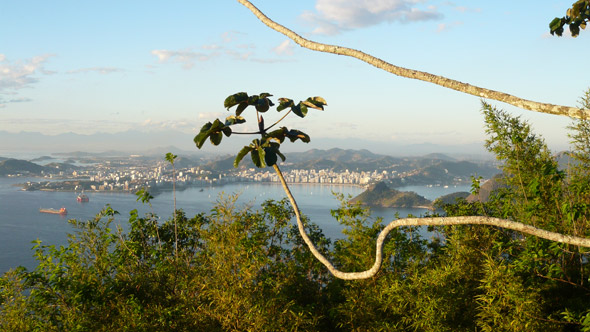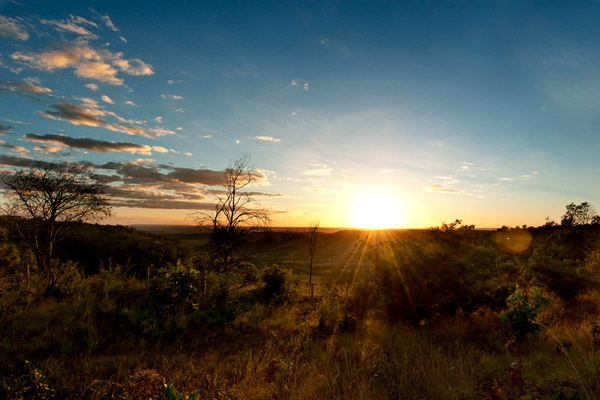Tourism in Brazil: Just a Couple of Lucky Breaks Before the Big Wipe-Out?
Brazil is experiencing an important growth in the tourism sector and the upcoming World Cup and Olympics will attract a huge amount of tourists. However, some challenges still need to be adressed such as high costs and education for example, so that Brazil can take full advantage of its huge touristic potential.

Problems of Tourism in Brazil
Serious investment also needs to be put into education, training and systems to make travelling in Brazil easier for foreign visitors and what many Brazilian business people will attest to is that Brazil desperately needs education and training to get customer service levels even close to those experienced in Europe, North America or Australia: “The level of public education in Brazil is dismal. Brazil often ranks amongst the lowest countries in terms of quality of education”, said Bobby Betenson and Martin Frankenberg of Matuete Brazil Travel Design.
The economic impacts resulting from the implementation of the World Cup may reach $183.2 billion by 2019, of which R$47.5 billion (26%) are direct and $135.7 billion (74%) indirect.
Statistics published by Ibope (The Brazilian Institute for Public Opinion and Statistics) in 2010 also show that only 26% of Brazilians in social classes A and B speak English, and only 1 out of 5 in social class C, namely those who come into daily contact with tourists through working in bars, restaurants and supermarkets speak any English. Whilst these things may not affect internal tourism, which is also thriving in Brazil as a result of the growing middle class, it will seriously detract from the foreign tourist’s overall experience when they can’t understand menus or directions and are not accustomed to waiting 20 minutes in a supermarket queue or an hour for a taxi. In order to meet its true potential Brazil needs an influx of foreign know-how as well as foreign investment, both of which are expressly welcome by government agencies and private businesses.
Another major obstacle that needs to be overcome is the fact that it is so difficult for a foreigner to book cheap internal flights or bus tickets online. The country´s national budget airline Gol now has its website in English and has made it possible to purchase flights with foreign credit cards (only however if you know to first select the page in English), but the other budget airlines: Trip, Azul, Webjet are still to do this and their websites do not accept purchases using foreign credit cards. Simple things like this confound and frustrate the foreign traveller. At the time of writing the only available flight booking engine Decolar.com does not include all the budget airlines, does not have an option to use its website in English and if you are savvy enough to work out that you can change the country from Brazil to the USA, all you´ll be offered is a website in Spanish with less flight options at twice the price. Fortunately this at least may be about to change as last month General Atlantic finalized its investment in Decolar.com, saying : “GA’s partnership with Decolar.com will help the company to improve IT processes; build data-mining capabilities and analysis; pursue potential mergers and acquisitions; and recruit the best talent to build out Decolar.com’s excellent management team.”
If Decolar.com can finally rectify this problem in relation to the purchase of cheap air tickets, someone is still needed to step up and offer a bus ticket booking engine in English and Spanish that accepts foreign credit cards and the government must think seriously about how it is going to manage an estimated 500,000 foreigners wanting to make online purchases with foreign credit cards during the World Cup as at the moment a CPF (Taxpayer ID Number) linked to a Brazilian credit card is needed to do so.

In terms of help with IT systems one irate customer complaining about not being able to book flights online with one of the major budget airlines received the following response from the airline´s customer service team: “The site only works with Internet Explorer”, meaning that anyone trying to book using some of the more popular web browsers such as Google Chrome or Mozilla FireFox just get error messages without any explanation.
An additional fact that may influence a foreign tourist´s decision to come to Brazil is the extremely high prices. Local tourism is flourishing due to the fact that Brazilians can pay for everything: flights, accommodation and tour packages in interest-free instalments meaning that Brazilians even on low middle-class wages can now afford to travel in their own country. For the foreign tourist however Argentina or Peru may be seen as better options with a quick stop-over in Rio de Janeiro instead of 3 whole weeks in Brazil due to high prices of things like public transport (one subway ticket in Buenos Aires costs the equivalent of 0.55 US cents whereas in Rio de Janeiro it´s $1.56USD), accommodation (a King room in a Marriot hotel costs $US 210 in Buenos Aires as opposed to $US 500 in Rio de Janeiro) and wine (the same bottle of Chilean wine in a supermarket in Buenos Aires costs $US 3.50 but is $US 14.50 in Rio).
A further barrier to tourists coming from Australia and the USA is the fact that citizens of both countries still have to pay $US 100 to obtain an entry visa.
On the other hand, the falling crime rate within Brazil is having positive effects on tourism. In an interview conducted last year the President of Embratur, Flavio Dino stated that: “We have conducted a survey amongst foreigners leaving Brazil and security didn´t even figure in their 5 main concerns”.
Two major changes have been made both of which have led to Brazil becoming a much safer place to visit than it is said to be in guidebooks and on foreign government websites: the “pacification of favelas”, where the police have taken control of many of the poorer communities in which drug dealing and crime was rife, and the growing middle class, meaning that less poverty equates to less crime. As Fernando Pimentel, Minister for Development, Industry and Foreign Trade stated in a recent interview: “Over the last two decades, thanks largely to government policy, the poverty rate in Brazil has halved. With this, income inequality (measured by the Gini coefficient) has also fallen sharply, declining on average by 1.2% a year” leading to “the ascension of 30 million Brazilians to the middle class”.
Obviously there are plenty of issues still to be dealt with but as long as foreign tourists don´t come to Brazil looking for German efficiency or Swiss cleanliness their expectations will be exceeded as Brazil´s diversity, natural beauty, vibrancy and human warmth shines through.
So just as Isaac Newton conclusively disproved his own Law of Gravity by demonstrating that “if an object has a sufficiently high upward velocity, gravity – weakening evermore with increasing distance – will not be able to bring the object down” every sign points to Brazilian tourism continuing to rise exponentially long after the World Cup and the Olympic games are over, meaning that surf´s up in Brazil and this perfect wave is forecast to continue.